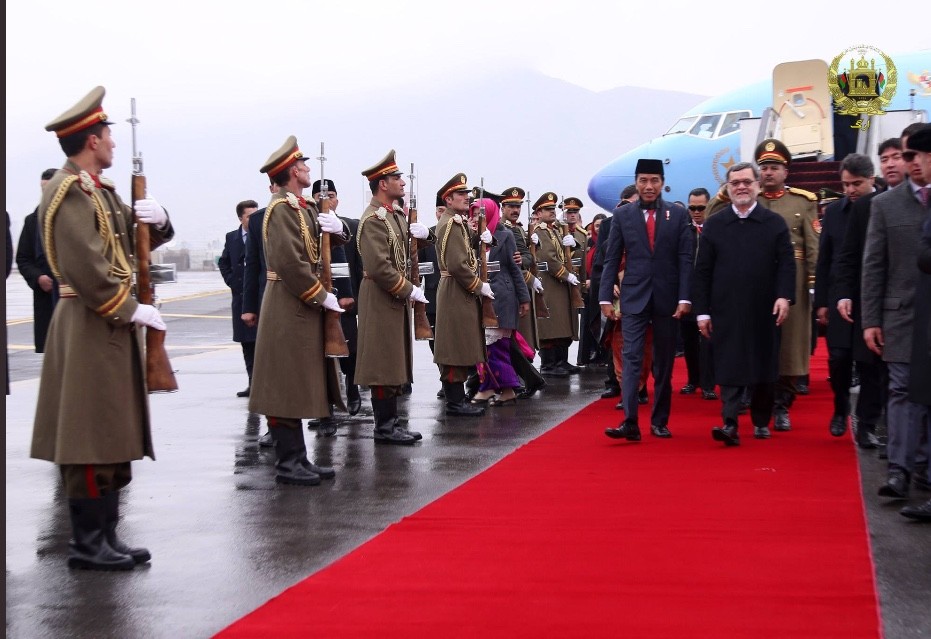Popular Reads
Top Results
Can't find what you're looking for?
View all search resultsPopular Reads
Top Results
Can't find what you're looking for?
View all search resultsContributing to world peace
Such a strong message should be promoted and embraced by the government and the wider Muslim community in Indonesia — whether grassroots or fringe — so that it reflects the face of tolerant Islam in Indonesia.
Change text size
Gift Premium Articles
to Anyone
I
ndonesia received another boost to its peace-building credentials when Vice President Jusuf Kalla played host to Mullah Abdul Ghani Baradar, the de facto leader of the Taliban from Afghanistan, in Jakarta over the weekend.
The visit of such a high-level delegation is part of larger efforts led by the United States and Norway to mediate peace in war-ravaged Afghanistan, but it also serves as a testament to Indonesia’s growing international stature.
For the past few years, Indonesia has put its best foot forward in the global order of multilateralism, promoting its unique brand of tolerant Islam to the world while also shoring up political will to tackle some of the world’s most complex struggles.
The nation is bound, as stipulated in the opening of the 1945 Constitution, to “participate toward the establishment of a world order based on freedom, perpetual peace and social justice […]” This has been the evergreen mantra for Indonesia’s diplomatic corps, especially with regard to its undying support of Palestinian statehood and a two-state solution to the Middle East crisis.
To this point, however, it is just confusing that officials of the largest Muslim-majority country saw it necessary to keep the meeting between Kalla and Baradar closely guarded, as is customary, instead of openly celebrating it with the rest of the country’s largely tolerant, moderate Muslims.
This was not without reason.
Indonesian officials have privately cited the need for trust as a big part of the equation. The talks coincided with Afghan President Ashraf Ghani’s declaration that “peace is coming” to the nation, although the Taliban has been cautious in dealing with the government.
At first glance, the Vice President is simply stepping into the familiar shoes of peacemaker — he is widely regarded for his role in brokering peace with the separatist movement in Aceh in early noughties, in Mindanao and South Thailand, and has been called upon again for his expertise.
President Joko “Jokowi” Widodo tasked Kalla with helping the Afghan government negotiate lasting peace with the Taliban, while also providing Indonesia’s brand of constructive assistance in state-building and advocacy.
But engagement with the Taliban, which is of a Sunni Hanafi-Deobandi “brand” of Islam, may prove to have more far-reaching consequences than can be neatly tied to peacebuilding, as it suggests that the goal of peace should transcend the limits of religious belief.
Such a strong message should be promoted and embraced by the government and the wider Muslim community in Indonesia — whether grassroots or fringe — so that it reflects the face of tolerant Islam in Indonesia.
The Foreign Ministry and the Vice President’s Office may have their reasons for keeping the weekend visit low profile, likely due to the sensitivity of the matter in Afghanistan and the fragility of existing peace.
However, Indonesia should be more self-confident and proud to be able to blaze a trail in world peace — both for its growing influence and for the sake of its own believers.










